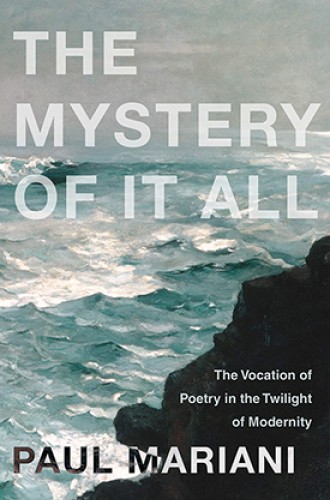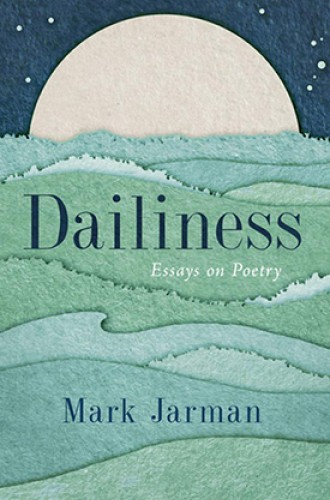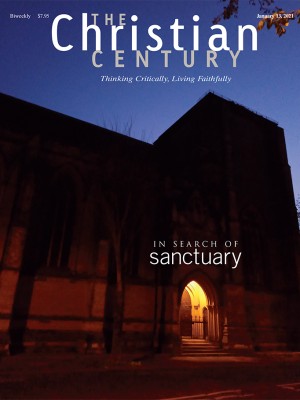Why do we write and read poetry?
For both Paul Mariani and Mark Jarman, the mystery is theological.
In 1952, W. H. Auden wrote, “What fascinates and terrifies us about the Roman Empire is not that it finally went smash,” but that “it managed to last for four centuries without creativity, warmth, or hope.” Both Paul Mariani and Mark Jarman frame creativity in commentary, radiate warmth in community, and gesture to hope in faith as they combine academic perspectives on the study of poetry with personal reflections on the experience of writing poems. The qualities that Auden could not locate in the culture of ancient Rome appear throughout their essay collections, making them welcome texts in our seething and steely era.
Religious influences from the writers’ childhoods inform their scholarly analyses and contribute to the shape of their creative writing. Before surveying selected moments in European and American poetry, Mariani, a professor at Boston College, tells about the faith that shapes his personal belief and informs his point of view as a biographer. “Early on, I felt touched by Christ’s presence, touched so deeply that I cannot think of life now without him, nor do I want to.” He then confesses the passion that turns his academic interests into vocations of scholarship and biography: “I love poems. All kinds of poems. And when I read something that touches me, I want to go deeper, probe further, go beyond the text to the human being who wrote those lines, and even try to discover why . . . a poet wrote the way he or she did.”
Read our latest issue or browse back issues.
Mariani has written biographies of Robert Lowell, John Berryman, Hart Crane, Wallace Stevens, and William Carlos Williams. His guiding star is Gerard Manley Hopkins, the 19th-century English Jesuit poet. In Hopkins, Mariani found a “kindred soul” and a “first-rate poet of faith.” He writes about him with reverence: Hopkins “has served as a model for me, both as a poet and as a man who served God as he could. Not a day goes by that I do not think of him, so much so that I feel his presence about me.”
The meaning of mystery in the book’s title is not “unexplored” or “inexplicable.” The “mystery of it all,” for Hopkins and for Mariani, is theological. In a letter to his agnostic friend Robert Bridges, Hopkins framed the mystery of the doctrine of the incarnation not as an “interesting uncertainty,” as he believed Bridges thought of it, but as an “incomprehensible certainty,” as he and his fellow Jesuits thought of it. In the sonnet “As Kingfishers Catch Fire,” Hopkins used these words: “Christ plays in ten thousand places.”
Catholic family stories energize Mariani’s prose and support his literary arguments. He describes Catholic religious orders fondly, adding that one of his sons is a Jesuit priest. Mariani traces a Catholic literary family forward from Hopkins to the Trappist monk Thomas Merton, observing that the two men shared the Franciscan belief that “the divine manifests itself in all of Creation, no matter how great or small.” For Hopkins, disciplined literary labor followed a pattern of obedience to religious vows. Mariani writes that at a crucial crossroads in the poet/priest’s life, “good Jesuit that he was,” he remained faithful to the vocational duties assigned to him, trusting that obedience would draw him closer to God.
While Mariani’s essays are broad, encomiastic, and homiletical, Mark Jarman’s essays are informally technical, instructive, and confessionally reserved. In the authoritative, patient, and conversational style of an accomplished poet and experienced teacher, Jarman, who teaches English at Vanderbilt University, highlights the virtues of the habit of writing and the results of those daily investments. He calls such disciplined work “adventures of routine,” suggesting that discoveries come when regular attention is paid to one’s writing.
Jarman invites readers into his classroom as he covers a broad range of topics: writing as a way of life, inner aspects of poetry, comments on the genre of the devotional poem. In the 17th-century poet George Herbert, Jarman finds, if not the polestar that Mariani finds in Hopkins, at least a bright star in the constellation of his poet forebears. In the life story of Herbert, an English country priest, Jarman recognizes the lives of his own clergy father and grandfather, reminding us, as Mariani does, that art is churned out of life, and that, as readers, we gravitate toward writers who share our experiences. Jarman praises Herbert for what he knows of his life as much as for his poems: “He understood the dailiness of faith, as a priest, a poet, and a common believer.”
Dailiness of duties—of writing and religious devotion—suggest repetitions. Patterns of religious practice are repeated on personal and corporate levels in the forms of prayer, motion in worship, movement in service, and song. Jarman shows how repetitions in poems draw readers into reflection and self-consciousness, toward what Robert Frost called the “allness” of poetry. He illustrates the mysterious power of repetition by examining parallelisms in biblical poetry and repetition in the work of canonical poets—Shakespeare, John Donne, Philip Larkin, and Frost—alongside examples from the contemporary American poets Kate Daniels, Andrew Hudgins, and Chase Twichell.
The devotional poem—identified as such by Samuel Johnson in the work of some 17th-century English poets—appeals to Jarman’s Protestant sensibilities for both its seriousness and its honest skepticism. The doctrines of faith are hard to understand and, if understood, hard to hold in one’s life. The urge to let gifts of grace into one’s daily routine is a worthy desire, but ambiguities abound in appropriation of God’s love. In poets with a secular outlook, faith’s devotional longing remains, but God is replaced by other transcendent desires of the heart. Jarman expands the definition of devotional poems by including models from American masters Walt Whitman and Emily Dickinson.
The concerns of Jarman’s essays radiate from the hope that disciplined writing redeems time and may produce poems that make the ordinary sacred: “We pray for the same reasons we write poetry: to understand and to be understood. And a poem, like a prayer, needs to be about something—something worth repeating.”







